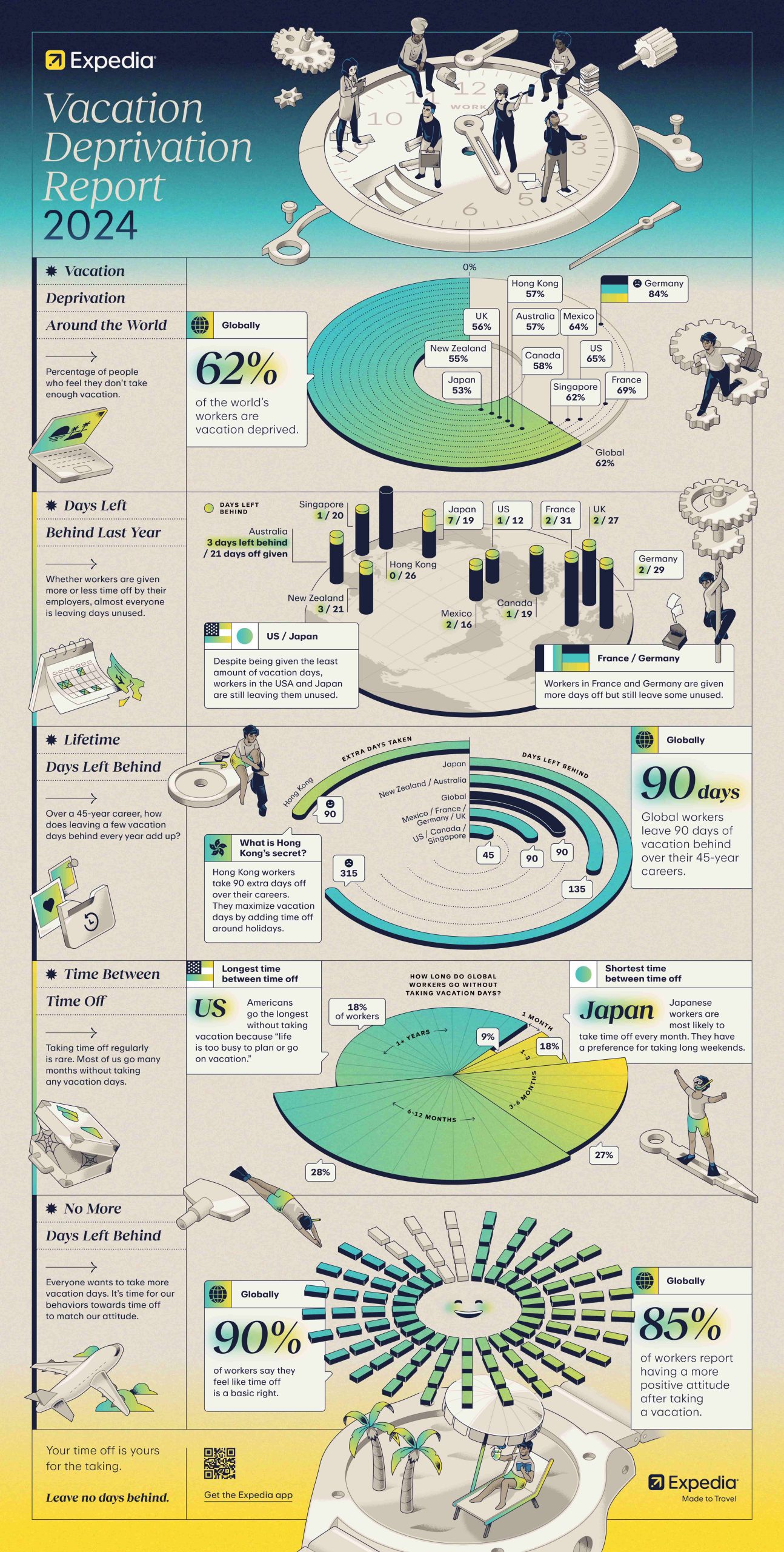
When was your last vacation? Whether you like to spend your time off traveling or relaxing at home, there’s nothing like getting away from the office to unplug and recharge. If your workplace offers paid time off (PTO), it’s important to remember that this isn’t just a perk; it’s part of your total compensation package. Each year, workers around the world let days of their PTO go unused.
Pros of Taking PTO
Maybe the thought of taking PTO makes you think of “Ferris Bueller’s Day Off.” While PTO can be the perfect opportunity to enjoy a fun day, spend time on a hobby, travel, or share an experience with loved ones, the benefits extend beyond additional free time.
Research shows time off has positive effects on mental health, well-being, stress, anxiety, depression, and even lowering rates of heart disease. The benefits of taking PTO can also contribute to better job and life satisfaction, and improve overall performance after returning to work.
However, there’s no need to plan a two-week vacation to experience positive effects. While PTO won’t replace the need for taking breaks or disengaging from work after your shift, even a short time away can leave you feeling refreshed. A study shows that having a planned vacation to look forward to can lower stress and heart rate levels.
Vacation Time Around the World
Vacation deprivation among Americans has hit an 11-year high, with 65% of workers feeling that they don’t have enough time off, according to Expedia’s Vacation Deprivation Report. According to the report, 62% of employees globally are vacation deprived, but 90% feel that time off is a basic right. Americans plan the least time off, and French workers take the most vacation of all countries surveyed in the global study.

Employee Hurdles to Time Off
Even with the incredible value of taking PTO, vacation days go unused every year. There are plenty of factors that deter employees from using their time off. Personal limitations like vacation budgets or complicated family schedules, and workplace challenges such as discouragement from leadership, limited coverage, or assumptions that their time off requests will be denied can prevent employees from so much as considering making a time off request.
Employees prioritizing the use of PTO for their own benefit and that of the company starts with support from their superiors and a workplace culture that encourages time off. Leaving PTO unused can lead to increased burnout, stress, and lower productivity levels.
Last Updated on September 3, 2025
2 comments
Comments are closed.